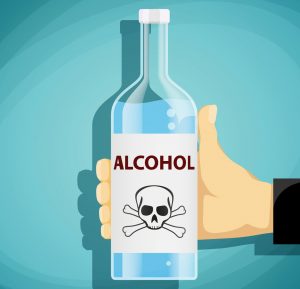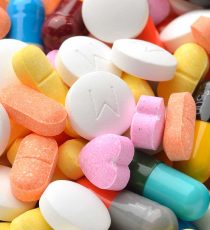
Whiskey is a popular alcoholic beverage the world over. It is a distilled beverage, meaning it is more concentrated than other alcoholic drinks. When you don’t drink moderately, whiskey has the potential to cause alcohol poisoning.
What happens in alcohol poisoning, and how can you avoid it? Here are some facts.
What is alcohol poisoning?
Normally, whiskey is not harmful to your body. But if you take too much of it, as with any alcoholic beverage, you can get alcohol poisoning. This happens when excessive amounts of alcohol accumulate in your blood, causing various problems in different organs of the body.
Alcohol poisoning causes the following symptoms:
 Confusion
Confusion- Irregular breathing
- Low body temperature
- Pale, clammy, and bluish skin
- Vomiting
- Incoherent speech and thoughts
- Unresponsiveness
- Seizures
- Coma
If you are near someone experiencing these symptoms, call 911 right away. The faster they get medical attention, the better their chances of survival. And if you happen to be the one having these symptoms, call for medical help immediately if you can. Otherwise, have a friend or family member get help for you.
Does whiskey contain that much alcohol?
Typical brands of whiskey are 40% alcohol by volume (ABV). Some can even have as high as 60% ABV. These are high concentrations of alcohol, which may soon lead to alcohol poisoning if you’re not careful.
For many people, three or four shots of whiskey is enough to make them feel drunk. That’s anywhere between 4 to 6 fluid ounces of the beverage at 40% ABV. If your tolerance to alcohol is similar, and you take a lot more than four shots of whiskey at a time, you are at high risk of alcohol poisoning.
How would I know if I’m in danger of alcohol poisoning from whiskey?
The most conclusive way to know if you have alcohol poisoning is by measuring your blood alcohol concentration (BAC). This can be determined through a breathalyzer or a blood test. In cases of driving under the influence of alcohol (DUI), police often use breathalyzers to get the BAC of suspected drunk drivers.
Before drinking, your BAC starts out at zero. As you drink more, your BAC increases progressively. At a level of 0.12, you will begin to show the following signs:
- Blacking out / passing out
- Very slow breathing
- More prone to accidents and injury
- Choking on your vomit
At this point, you have become obviously drunk, but not yet poisoned. Alcohol poisoning begins when you reach a BAC of 0.25, and once you reach 0.39, you could lose consciousness. The worst case is when your BAC exceeds 0.40: this can cause you to go into a coma and respiratory arrest, making it deadly.
How much whiskey can I drink before reaching a dangerous BAC?
That depends on your body’s tolerance for alcohol. If you’re not used to drinking whiskey, your BAC will climb faster as you drink more. However, if you’re a frequent drinker, it may take more shots for your BAC to go up.
There is no dangerous amount of whiskey set in stone. It varies per person, depending on their levels of tolerance for alcohol. It’s best if you know your limit, and never go beyond that.
How do I protect myself from alcohol poisoning?
 The only 100% effective way to avoid alcohol poisoning is to abstain from drinking entirely. However, if you like whiskey that much and can’t help it, there are ways to keep yourself safe.
The only 100% effective way to avoid alcohol poisoning is to abstain from drinking entirely. However, if you like whiskey that much and can’t help it, there are ways to keep yourself safe.
First of all, it’s important to drink your whiskey slowly. That way, you can enjoy long drinking sessions while avoiding intoxication and alcohol poisoning. Take small sips at a time, and don’t consume your glass of whiskey right away.
If you gulp it down, more alcohol will enter your body over a short time. If you don’t watch yourself and keep chugging down whiskey, you are in greater danger of alcohol poisoning.
Also, it helps to have a glass of water by your side at all times. Drink a glass of water in between sips of whiskey. This will dilute the alcohol that goes into your body and weaken its effects. Moreover, water also prevents dehydration, which is another side effect of consuming alcohol.
Another thing you can do is to eat a full meal before drinking whiskey. When your stomach is filled, it will take longer for alcohol to be absorbed into your bloodstream. When combined with slow drinking, your BAC will not reach harmful levels even after a long session.
Most importantly, you should know your tolerance for alcohol and stick to your limit. For example, if you start to get dizzy after five shots of whiskey, stop drinking. Five shots is your limit, so you should never drink more than that. Better yet, drink only four shots at most to avoid intoxication.
Do not wait for yourself to pass out before you decide to stop drinking further. By that point, you may have already suffered the effects of alcohol poisoning. If the people around you do not know, and they did not call for medical help, your life would be in a lot of danger.
Avoid letting others pressure you into drinking more whiskey than you can handle. If you know your limit, never go beyond it.
How is alcohol poisoning treated?
 Only qualified medical professionals should treat cases of alcohol poisoning. Once you’re in the ER, doctors would first assess your symptoms, then provide the necessary care. If, for example, you find it really hard to breathe, they may give you an artificial windpipe to help with breathing. Alternatively, you could be given an oxygen mask or intubated.
Only qualified medical professionals should treat cases of alcohol poisoning. Once you’re in the ER, doctors would first assess your symptoms, then provide the necessary care. If, for example, you find it really hard to breathe, they may give you an artificial windpipe to help with breathing. Alternatively, you could be given an oxygen mask or intubated.
If you’re experiencing dehydration and low blood sugar levels, doctors would give you fluids and glucose intravenously. This is common in cases of alcohol poisoning.
Other times, especially when your symptoms have become fatal, doctors may induce vomiting or order a stomach pump. These will remove any excess alcohol from your body to stop the fatal effects.


